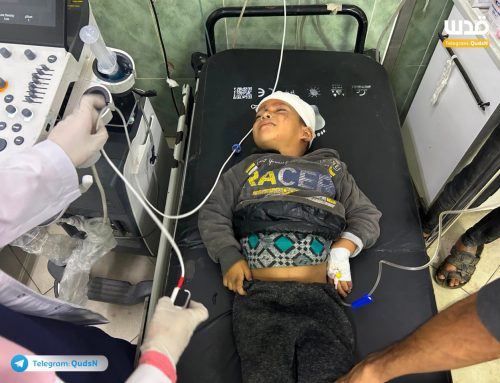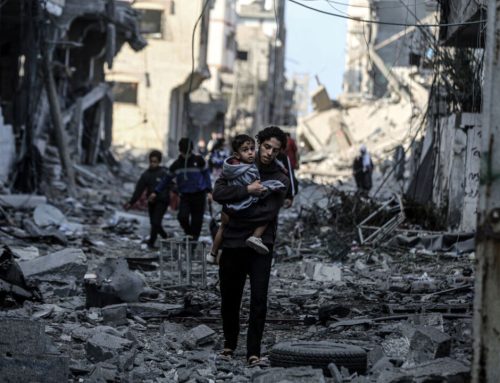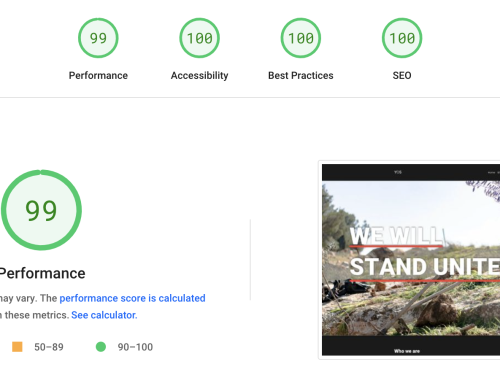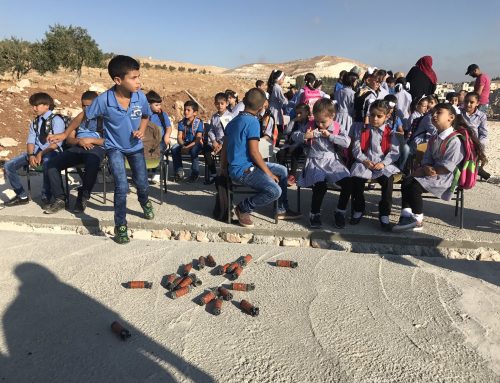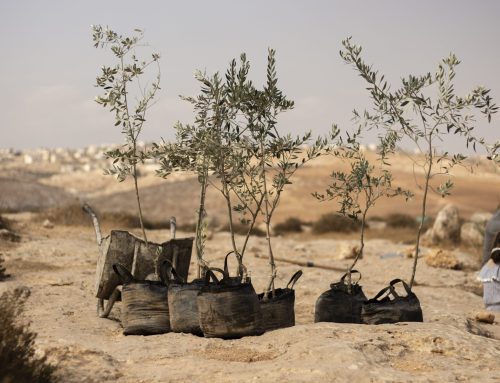Solidarity in al-Rakeez
Last week, Good Shepherd Collective worked together with a group of activist in al-Rakeez on the building infrastructure of the local residents. Many people will have recently remembered this village through the shooting of Harun by Israeli soldiers in his neck. While trying to keep the electric generator from being stolen by the Israeli Civil Administration, the Israeli soldiers shot the unarmed Palestinian. Months later, Harun Abu Aram by Israeli soldiers in his neck. He is still in hospital and the soldier who shot him did not face persecution.
Our joint workday in al-Rakeez did not happen without thinking and asking about Harun, about the fate of the community. In light of this, our physical work rather felt like an insignificant attempt to resist this omnipresent injustice and violence against Palestinians. This act of physical labor in the heat of the Palestinian spring of course will not bring political justice for the nearly 6,000 people who have been killed by the Israeli army since 2008, or the thousands and thousands of Palestinian homes that have been destroyed.
But this does not mean that this work is unpolitical. In a space, in which the juridical system, illegalizes the mere existence of Palestinians in many places of Area C, the very act of rebuilding homes is fundamental. The Good Shepherd Collective’s regular workdays with Palestinians in the rural areas emerged out of the belief that justice in the Holy Land cannot be simply bargained within the political centers and cities. Justice and freedom need to emerge from the areas which are structurally marginalized and in many layers oppressed.
Our workday in the South Hebron Hills, in this sense, was not only a small step into building a livelihood for Palestinians in this area. Until justice emerges in this place, working for the very basic needs of those who are denied it, is a small but practical step towards justice.
Planting these olive trees helps to secure vulnerable Palestinian lands, but it is also a demonstration of how indigenous people breathe life into spaces that are often targets of settler violence. By donating an olive tree, you help us to show each other, together, the strength and value of new life as a tool of resistance.




